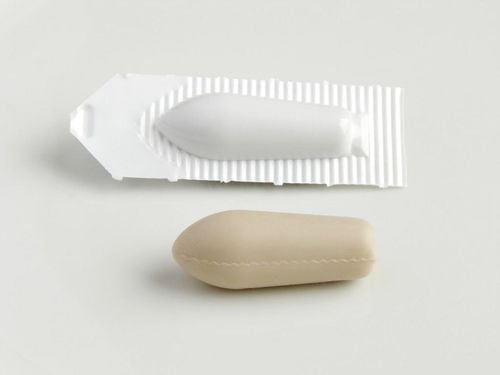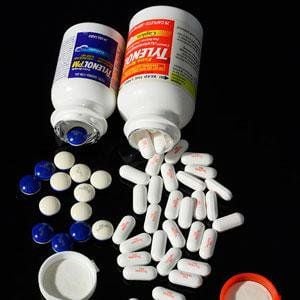Currently, there are various forms of medications, including oral tablets, intramuscular injections, intravenous injections, powders, and syrups. Many people believe that injectable medications are more effective than oral ones, leading to a preference for injections. So, what exactly is the difference between oral and injectable medications? Which one works better?
1. Differences Between Oral and Injectable Medications
1.1 Characteristics of Oral Medications
- Slower onset of action compared to injectable medications.
- Less likely to cause complications related to injections or infusions.
- Convenient and easy to use; patients can self-administer the medication at home.
- Some oral medications may interact with each other, reducing absorption. Therefore, they should not be taken simultaneously, and a waiting period of 1-2 hours (depending on the medication) is recommended.
- Oral medications may not be suitable for patients with frequent vomiting, gastrointestinal mucosal damage, malabsorption syndromes, etc. For comatose patients or those unable to ingest normally, medications can be administered through a feeding tube.
- Generally, injectable medications are more expensive than oral medications. Tablets, capsules, and soft gel capsules are widely available at pharmacies nationwide.
1.2 Characteristics of Injectable Medications
- Injectable medications have a rapid onset of action and are commonly used in emergency situations where immediate effects are required. For bacterial infections, injectable antibiotics are often indicated in cases of severe infections, deep-seated infections, or when oral antibiotics are not well-tolerated.
- Some medications are only available in injectable form because they are poorly absorbed through the gastrointestinal tract or are easily degraded by gastric acids.
- Injectable medications are particularly useful for patients who cannot take oral medications due to excessive vomiting, gastrointestinal issues leading to malabsorption, or lack of cooperation from the patient.
- However, injectable medications may cause certain complications, such as pain at the injection site, vascular occlusion, abscess formation, phlebitis, infections, anaphylactic shock, or tissue necrosis if the medication is administered incorrectly (e.g., calcium chloride injections).
- Patients are generally unable to self-administer injectable medications at home (with exceptions such as insulin injections) and must visit a healthcare facility where the medication is administered and monitored by medical professionals.
2. Which Is Better: Oral or Injectable Medications?
When a doctor decides whether a patient should use oral or injectable medication (intramuscular, subcutaneous, slow intravenous injection, or intravenous infusion), the decision is entirely based on the treatment objectives, the patient’s actual condition, and considerations of the drug's pharmacodynamics and pharmacokinetics. The requirement for medication use is to select the most suitable form of medication that can achieve sufficient concentration at the site of action to be effective. Additionally, the medication should cause minimal adverse effects, be easy to administer, have a palatable taste when taken orally, cause minimal discomfort when injected, and be cost-effective.
Medications are available in various formulations, allowing physicians to choose the most appropriate form based on the severity of the illness, the patient’s condition, and specific needs, ensuring convenience, especially for elderly patients and children. From a pharmacokinetic perspective, when any medication enters the body, it requires a certain amount of time to be absorbed into the bloodstream, exert its effect, and then be eliminated from the body through various pathways. Injectable medications rapidly reach high concentrations in the bloodstream and at the target site, meaning they take effect quickly. However, they may also be eliminated from the body more rapidly. For example, when intravenous ampicillin is administered, the drug reaches its maximum concentration in the blood within 2–3 minutes but is eliminated from the body within 5 hours. This necessitates at least four daily doses to maintain therapeutic drug levels for treating infections. In contrast, intramuscular injections take 45–60 minutes to achieve peak levels and are eliminated within 7–8 hours, requiring at least three daily injections for adequate therapeutic effects.
Therefore, it is impossible to definitively state whether injectable or oral medications are better. The choice of medication form depends on the patient’s condition, individual characteristics, cost, and other factors. In practice, injectable medications are often used in cases of gastrointestinal absorption disorders, persistent vomiting, or severe infections (e.g., septic shock, meningococcal sepsis). In the majority of other situations, oral medications at appropriate dosages can effectively treat illnesses. Moreover, oral medications avoid causing pain, especially for children, have fewer side effects and complications than injectables, are easier to use, widely available, and more affordable.
In conclusion, both injectable and oral medications have distinct advantages and disadvantages. Choosing the appropriate form of medication depends on the patient’s condition, specific characteristics, cost, and various other factors. Patients should strictly follow their doctor's instructions to ensure safety and effectiveness when using medications.
For more health-related insights, including topics on nutrition and wellness, visit the official website of Vinmec International Hospital to safeguard the well-being of yourself and your loved ones.
To arrange an appointment, please call HOTLINE or make your reservation directly HERE. You may also download the MyVinmec app to schedule appointments faster and manage your reservations more conveniently.













